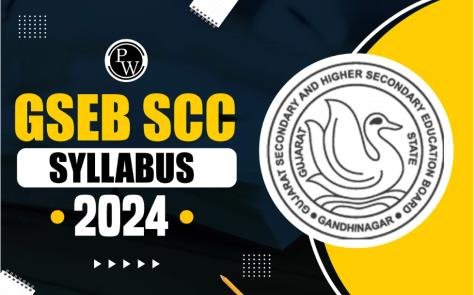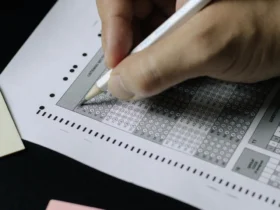The Gujarat Secondary and Higher Secondary Education Board (GSHSEB), established in 1973, plays a pivotal role in shaping the educational landscape of Gujarat, India. As a government body under the Gujarat Department of Education, GSHSEB oversees the administration, academics, and overall direction of secondary (Class 10) and higher secondary (Class 12) education in the state. This article delves into the various facets of GSHSEB, highlighting its responsibilities, functions, and impact on Gujarat’s educational ecosystem gujarat secondary and higher secondary education board.
Core Responsibilities of the GSHSEB
GSHSEB shoulders a wide range of responsibilities that ensure the smooth functioning and quality of secondary and higher secondary education in Gujarat. These key responsibilities include:
- Curriculum Development: GSHSEB is responsible for formulating the curriculum for both the Class 10 (Secondary School Certificate—SSC) and Class 12 (Higher Secondary Certificate—HSC) examinations. This curriculum outlines the learning objectives, syllabus content, and pedagogical approaches for various subjects across different streams like science, the arts, and commerce.
- Examination Conduct: GSHSEB conducts the annual board examinations for both SSC and HSC students across Gujarat. These standardized exams assess student learning outcomes and play a crucial role in determining their academic progression to higher education or the workforce.
- School Affiliation and Recognition: GSHSEB grants affiliation to schools in Gujarat, authorizing them to conduct the board exams and award certificates under the GSHSEB framework. The board also undertakes inspections and evaluations to ensure affiliated schools maintain the required infrastructure, facilities, and teaching standards.
- Research and Development: GSHSEB actively promotes research and development initiatives in the field of education. This might involve collaborating with educational institutions, conducting research studies on curriculum effectiveness, or exploring new assessment methodologies.
- Policy Formulation: GSHSEB plays a key role in formulating educational policies related to secondary and higher secondary education in Gujarat. These policies guide various aspects of the education system, including teacher recruitment, textbook selection, and examination reforms.
Functions of the GSHSEB
To fulfill its core responsibilities, the GSHSEB performs a variety of essential functions. Here’s a closer look at some of the most critical functions:
- Developing and Distributing Textbooks: GSHSEB recommends textbooks for use in government schools and affiliated private schools. The board conducts a thorough evaluation process to ensure the textbooks adhere to the prescribed curriculum and meet the required quality standards.
- Registration and Management of Students: GSHSEB manages the online registration process for students appearing for the board exams. This includes collecting student data, issuing admit cards, and maintaining exam records.
Evaluation and Result Declaration: GSHSEB oversees
- The evaluation of answer sheets for both: SSC and HSC exams. The board employs a robust system of examiners and moderators to ensure fairness and accuracy in the evaluation process. Once the evaluation is complete, GSHSEB declares the exam results online, making them accessible to students and schools.
- Providing Online Services: GSHSEB leverages technology to offer various online services to students, schools, and other stakeholders. These services might include online application submission for revaluation or duplicate certificates, online access to previous year’s question papers, and online grievance redressal mechanisms.
Impact of GSHSEB on Gujarat’s Education System
GSHSEB’s role stretches far beyond simply conducting exams. The board significantly contributes to the development and improvement of Gujarat’s secondary and higher secondary education systems in various ways:
- Standardization and Quality Control: By setting the curriculum and conducting standardized board exams, GSHSEB ensures a certain level of uniformity and quality across schools within Gujarat. This allows for a fair comparison of student performance and facilitates seamless transitions to higher education or the job market gujarat secondary and higher secondary education board.
- Promoting Curriculum Innovation: GSHSEB periodically reviews and updates the curriculum to reflect the changing needs of society and advancements in various fields. This ongoing process ensures that students receive contemporary and relevant education.
Enhancing Accountability: GSHSEB’s
- school affiliation process and inspection mechanisms hold schools accountable for maintaining adequate infrastructure, qualified teachers, and effective teaching methods. This focus on accountability motivates schools to continuously improve their educational offerings.
- Facilitating Equitable Access: GSHSEB strives to provide equal opportunities for all students. Initiatives might include offering scholarships to students from underprivileged backgrounds or developing special programs for students with disabilities.
Challenges and Future Directions for GSHSEB
Despite its significant contributions, GSHSEB faces certain challenges that require ongoing attention:
- Reducing Exam Stress: High-stakes board exams can create immense pressure on students. GSHSEB can explore alternative assessment methods that go beyond rote learning and encourage a more holistic evaluation of student capabilities.
- Promoting Vocational Education: While focusing on traditional academic streams, GSHSEB could dedicate more resources to developing and promoting vocational education options. This would provide students with career-oriented skills and better prepare them for the job market.
- Enhancing Teacher Training: Continuous gujarat secondary and higher secondary education board.

